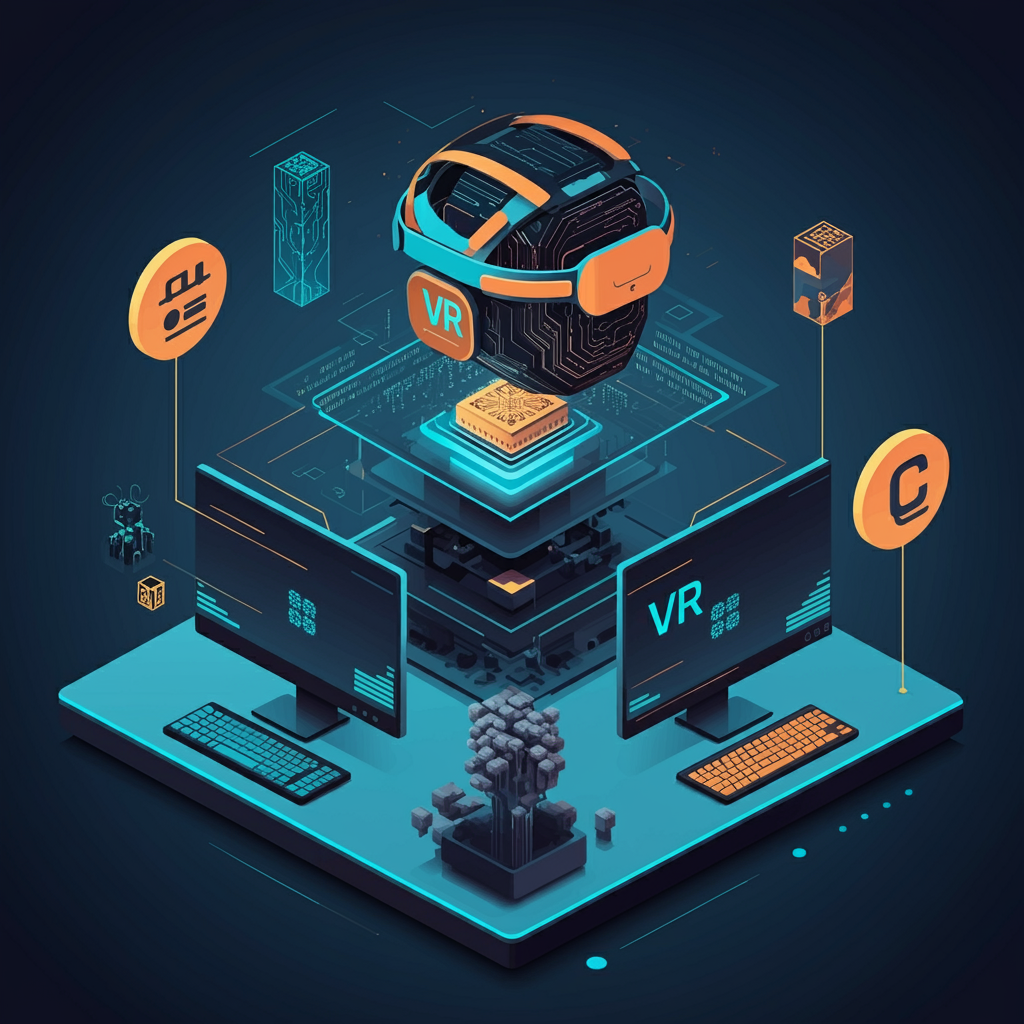The integration of virtual reality (VR) with blockchain technology is poised to revolutionize competitive gaming by introducing new levels of transparency, security, and player empowerment. As both VR and blockchain technologies continue to advance, their convergence presents exciting opportunities and challenges for the gaming industry, particularly in the realm of competitive play.
Blockchain technology offers a decentralized and immutable ledger that can significantly enhance various aspects of competitive gaming. In VR competitive gaming, blockchain can be leveraged to create transparent and tamper-proof records of gameplay, scores, and achievements. This ensures that all results are verifiable and resistant to manipulation, fostering a more trustworthy competitive environment. By recording each player’s performance and achievements on the blockchain, developers can create a system where players’ accomplishments are permanently logged and easily verified, eliminating disputes and enhancing the integrity of competitive rankings.
Additionally, blockchain technology introduces the concept of digital ownership through non-fungible tokens (NFTs). In VR gaming, NFTs can represent unique in-game assets, such as virtual items, characters, or skins, that players can own, trade, and sell. This adds a new dimension to competitive gaming by allowing players to acquire and showcase exclusive items that have real-world value. The ability to trade these assets securely and transparently on blockchain platforms not only enriches the gaming experience but also opens up new revenue streams for players and developers alike.
The integration of VR and blockchain also enables the creation of decentralized gaming economies. In these economies, players can earn rewards in the form of cryptocurrency or digital assets for their performance and participation. This model incentivizes competitive play and provides players with tangible rewards that can be used across different games and platforms. The use of blockchain-based currencies and tokens in VR games introduces a new level of financial interaction, allowing players to monetize their skills and achievements in ways that were previously unattainable.
Smart contracts, a key feature of blockchain technology, further enhance the integration with VR competitive gaming. These self-executing contracts automatically enforce rules and agreements between players and developers without the need for intermediaries. In competitive gaming, smart contracts can be used to manage tournament rules, prize distributions, and player agreements with greater efficiency and security. This reduces the risk of disputes and ensures that all parties adhere to agreed-upon terms, streamlining the competitive gaming process.
Despite the promising benefits, the integration of VR and blockchain technology also presents challenges. The complexity of blockchain systems and the need for technical expertise can be barriers to widespread adoption. Additionally, the volatility of cryptocurrency markets may introduce financial risks for players and developers. Ensuring a seamless and user-friendly experience while addressing these challenges will be crucial for the successful integration of VR and blockchain in competitive gaming.
Overall, the fusion of VR and blockchain technology has the potential to transform competitive gaming by enhancing transparency, ownership, and financial opportunities. As these technologies continue to evolve, their combined impact could redefine the future of competitive play, offering innovative experiences and new possibilities for players and developers alike.

